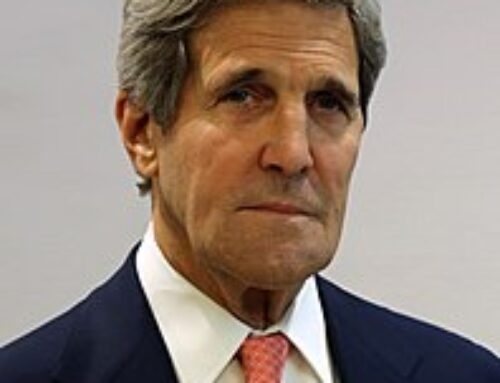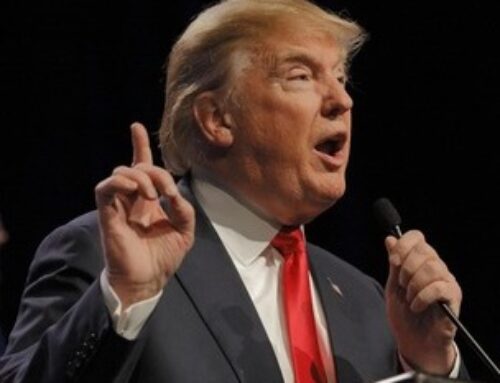
The reason that supported his decision was that the investigation found insufficient evidence of “clearly intentional and willful mishandling of classified information” or behavior that would “support an inference of intentional misconduct.”
I do not doubt Comey’s personal integrity and I take him at his word that “no outside influence of any kind was brought to bear” on him, though that would have required heroic restraint on the part of Clinton operatives.
However, I find Comey’s conclusion that there was insufficient evidence baffling, to put it mildly.
Comey’s investigators must have examined the “Classified Information Nondisclosure Agreement“ that Hillary, like every other State Department employee, was required to sign. Granted the State Department has evaded the question of whether Hillary actually signed it, but FBI investigators should have been able to overcome that obstacle.
I say this because I found the document by a simple Google search. It bears the following heading:
Unclassified U.S. Department of State Case No F-2015-05069 Doc No C05833708 Date: 11/05/2015 REVIEW AUTHORITY: Barbara Nielsen, Senior Reviewer
“Hillary Rodham Clinton” is typed at the top, “H R Clinton” is signed at the bottom, and the date 22-01-09 is handwritten. I doubt it is a forgery because it is on a government website (.gov), it begins with “U.S. Department of State,” and it bears a “FOIA” designation. Signing the form represented a declaration that Clinton read it carefully and received answers to any questions she may have had about it, including questions concerning the governing statutes.
Points 2 through 4 of the form are especially relevant to the question concerning “intentional misconduct.” Here are those points with my comments.
2. I hereby acknowledge that I have received a security indoctrination concerning the nature and protection of classified information, including the procedures to be followed in ascertaining whether other persons to whom I contemplate disclosing this information have been approved for access to it, and that I understand these procedures.
In signing the document Clinton confirmed that she received appropriate instruction and understood the procedures for protecting classified information. Ignorance is therefore not an excuse, nor is the claim that everyone knew what she was doing and/or everyone did it.
3. I have been advised that the unauthorized disclosure, unauthorized retention, or negligent handling of classified information by me could cause damage or irreparable injury to the United States or could be used to advantage by a foreign nation. I hereby agree that I will never divulge classified information to anyone unless: (a) I have officially verified that the recipient has been properly authorized by the United States Government to receive it; or (b) I have been given prior written notice of authorization from the United States Government Department or Agency (hereinafter Department or Agency) responsible for the classification of information or last granting me a security clearance that such disclosure is permitted. I understand that if I am uncertain about the classification status of information, I am required to confirm from an authorized official that the information is unclassified before I may disclose it, except to a person as provided in (a) or (b), above. I further understand that I am obligated to comply with laws and regulations that prohibit the unauthorized disclosure of classified information.
In signing the document, Clinton confirmed that she knew the danger of careless disclosure of classified information and knew her obligations in handling that information. The fact that despite this knowledge she behaved, in Comey’s words, “with great carelessness” provides the clear “inference of intentional misconduct” Comey was unable to find. Finding it should not have been difficult: Knowing what she was forbidden to do, yet doing it anyway is almost a definition of intentional misconduct!
4. I have been advised that any breach of this Agreement may result in the termination of any security clearances I hold; removal from any position of special confidence and trust requiring such clearances; or termination of my employment or other relationships with the Departments or Agencies that granted my security clearance or clearances. In addition, I have been advised that any unauthorized disclosure of classified information by me may constitute a violation, or violations, of United States criminal laws, including the provisions of sections 641, 793, 794, 798, *952 and 1924, title 18, United States Code; *the provisions of section 783(b}, title 50, United States Code; and the provisions of the Intelligence Identities Protection Act of 1982. I recognize that nothing in this Agreement constitutes a waiver by the United States of the right to prosecute me for any statutory violation.
If any further evidence of an “inference of intentional misconduct” is needed, Clinton’s confirmed understanding of this passage provides it. Moreover, the fact that she understood the danger of criminal prosecution for her actions, yet did them anyway, could reasonably be interpreted as contempt for the law.
For these reasons, I find FBI Director Comey’s conclusion that there was insufficient reason to prosecute Hillary Clinton an offense against logic and an insult to the intelligence of the American people. The enormity of the mistake can best be understood by contemplating that the woman who behaved so irresponsibly with the nation’s secrets could become the highest official in the nation.
Copyright © 2016 by Vincent Ryan Ruggiero. All rights reserved



